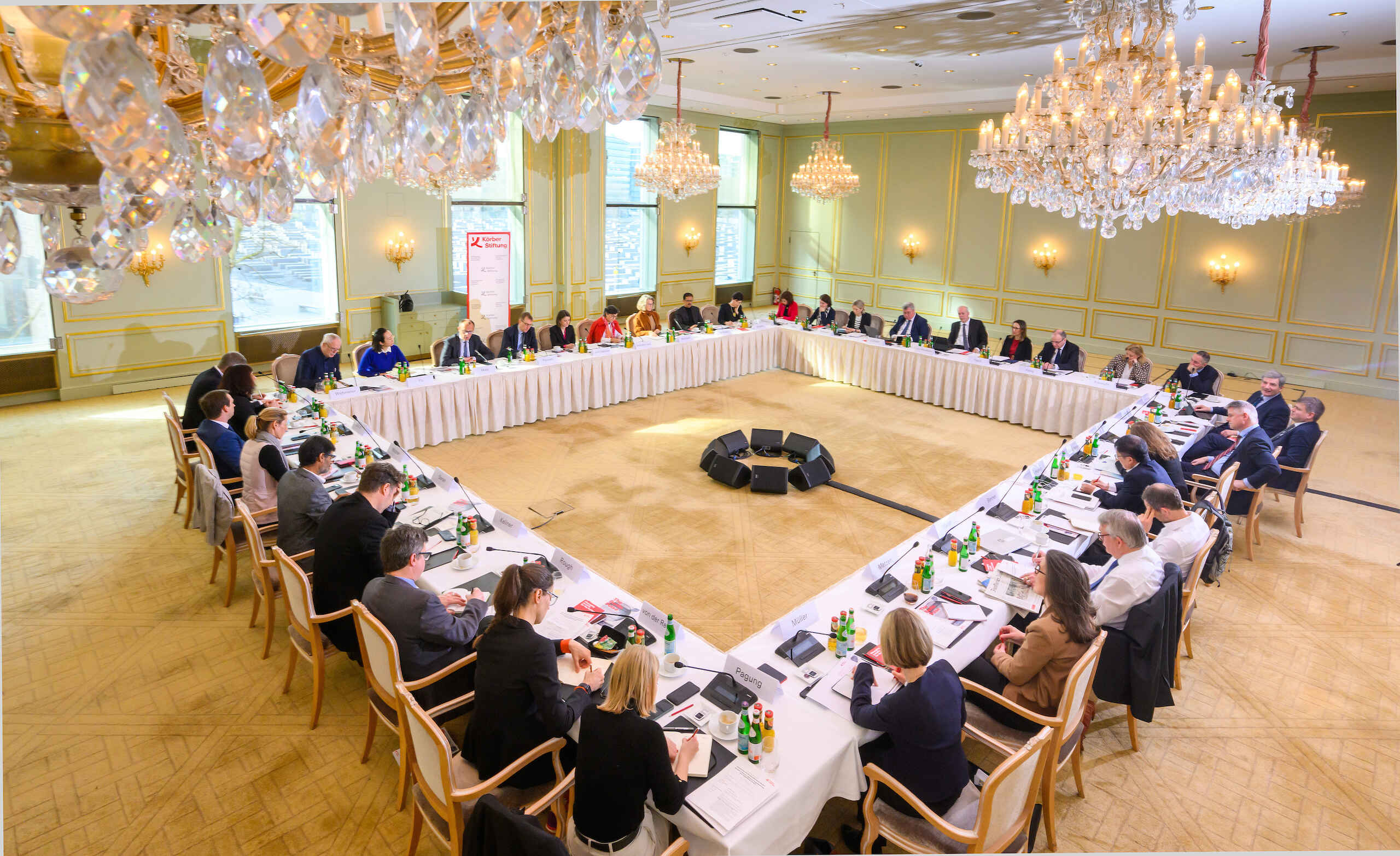
Photo: David Ausserhofer
181st Bergedorf Round Table
Reinventing the German (Business) Model?
Germany’s Role in a World of Deglobalization and Geopolitical Tension
17 – 18 March 2023 in Berlin
Since its heyday prior to the global financial crisis, globalization has lost traction. With rising geopolitical tension, notably the Sino-American rivalry and the threat of economic decoupling, cracks in the rules-based international economic order, the COVID pandemic and ensuing supply chain disruptions, and the geoeconomic fallout from Russia’s war of aggression against Ukraine, it seems a new era of deglobalization is dawning. Faced with the “weaponization of everything”, governments scramble to reduce economic dependencies, make supply chains more resilient and shield national industries. For Germany with its export-reliant, hyper-networked economy and its – until recently – rather unquestioning embrace of globalization and economic interdependence, deglobalization is a particularly threatening prospect. Is Germany’s business model busted, and what does its future look like – rejection, reform, or reinvention?
The 181st Bergedorf Round Table explored how to update the German business model, and what is needed to adjust it to a 21st century characterized by great-power competition and deglobalization.
The participants of the 181st Bergedorf Round Table were 35 high-ranking politicians, government officials, and representatives of think tanks, academia and media from Germany, Europe, the United States, and Asia.
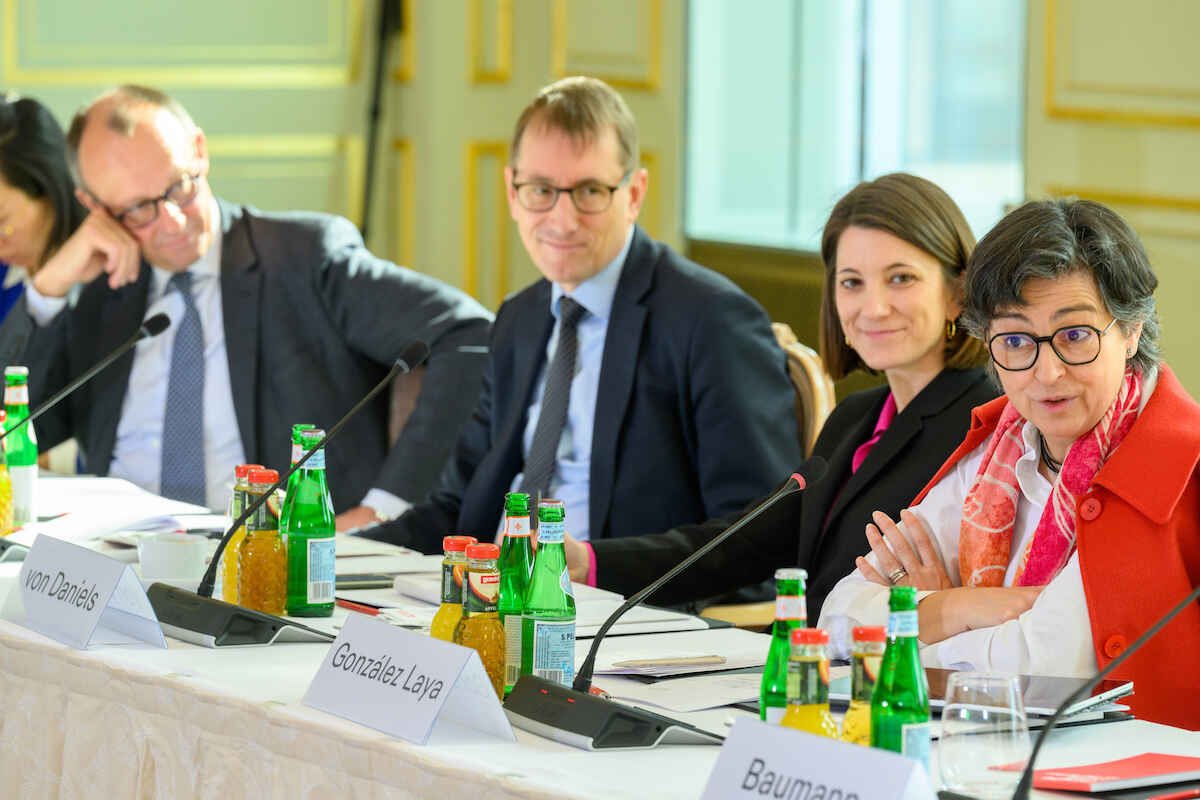
Friedrich Merz, Thomas Paulsen, Laura von Daniels, Arancha González Laya all photos: David Ausserhofer 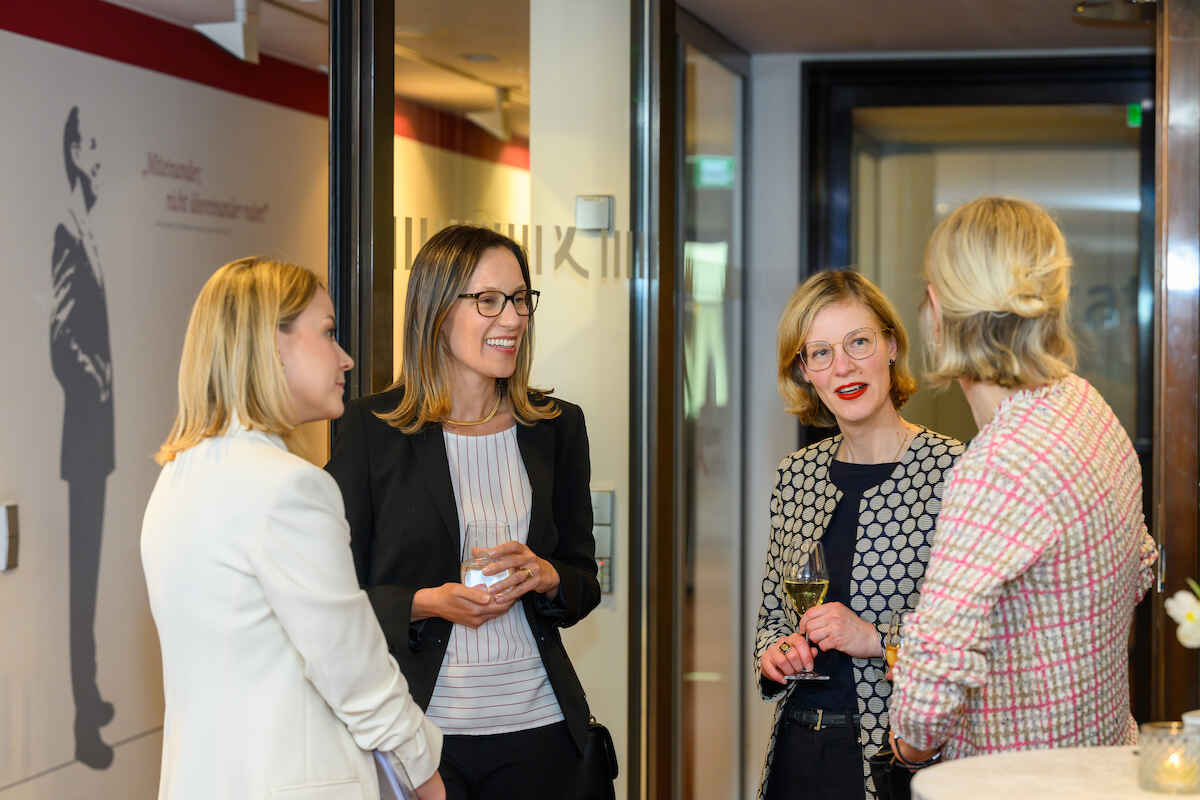
Sarah Pagung, Lisandra Flach, Nora Müller, Kristina Eichhorst 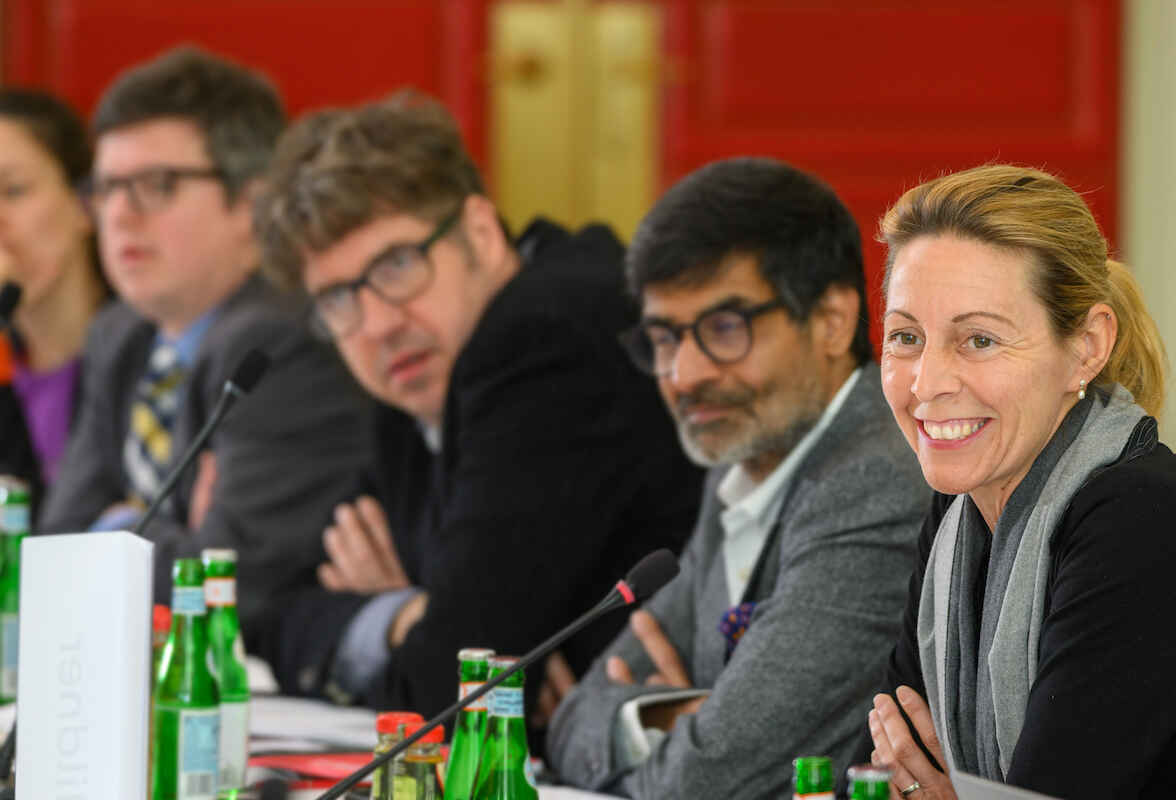
Peter Rough, Michael Kellner, Samir Saran, Stormy-Annika Mildner 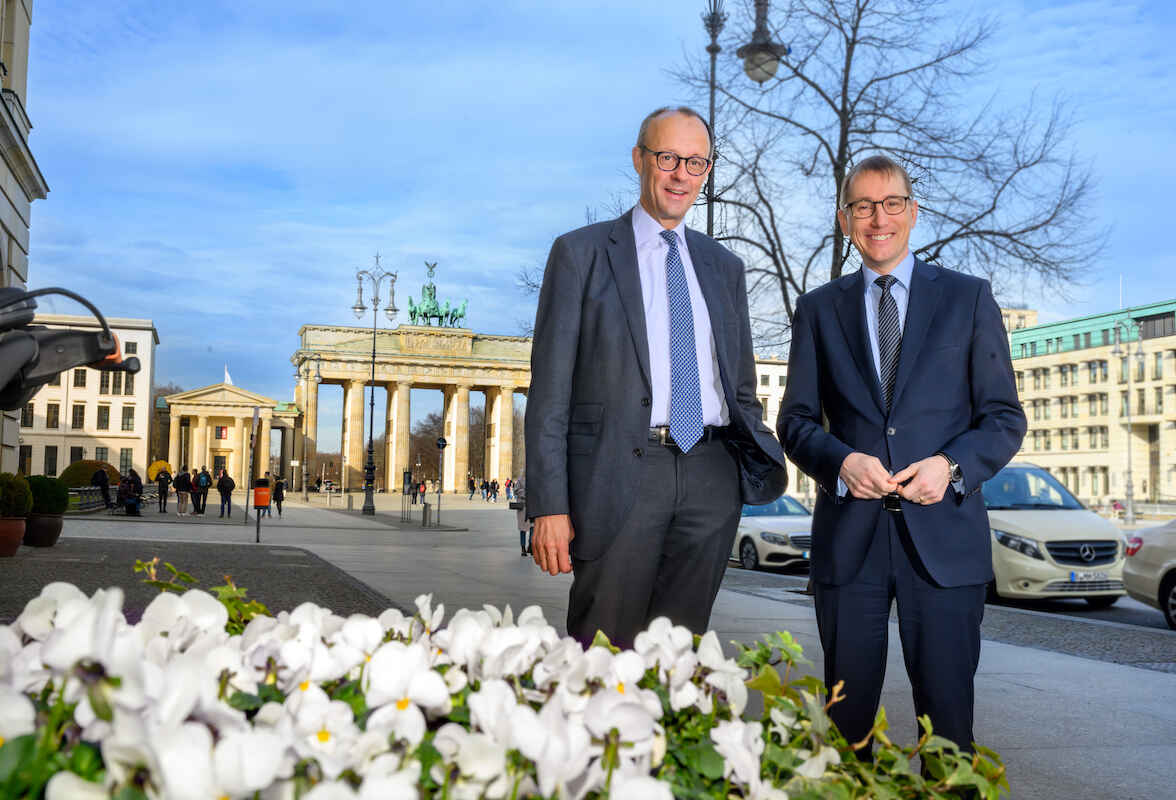
Friedrich Merz, Thomas Paulsen 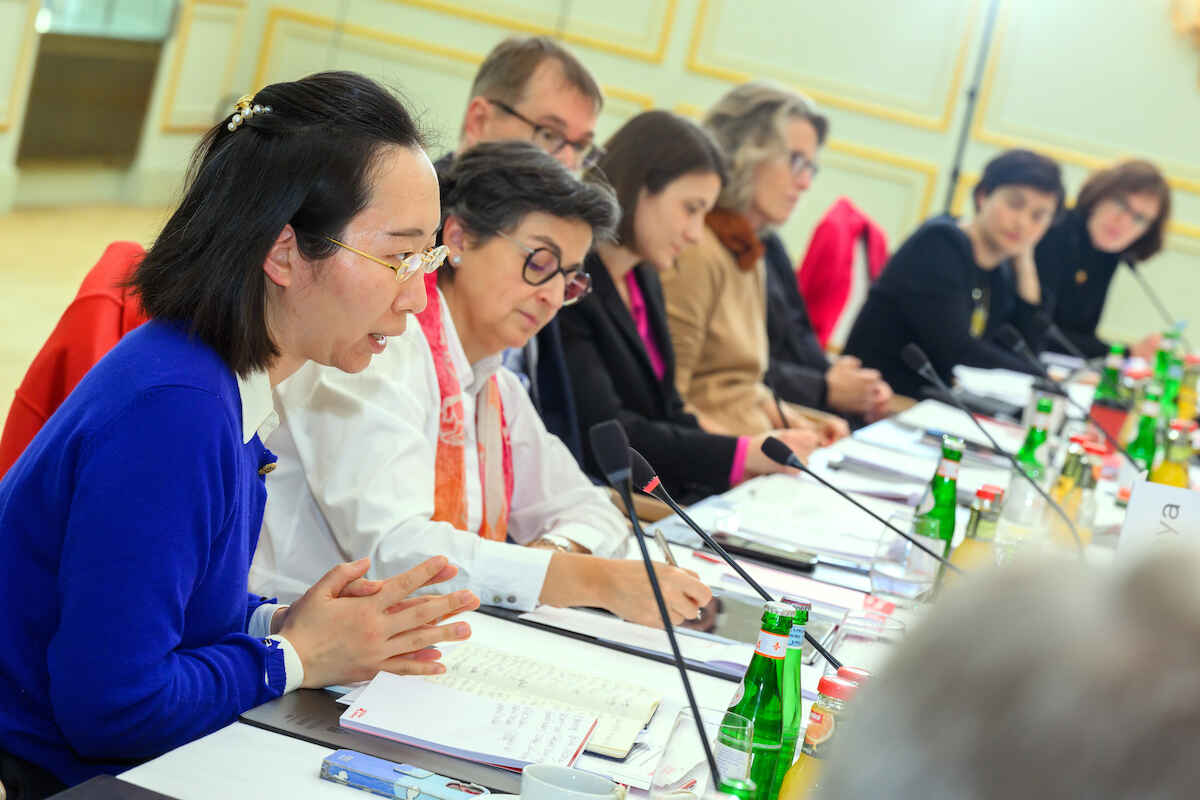
Yu Jie, Arancha González Laya, Thomas Paulsen, Laura von Daniels, Susanne Baumann, Cécile Boutelet, Daniela Brönstrup 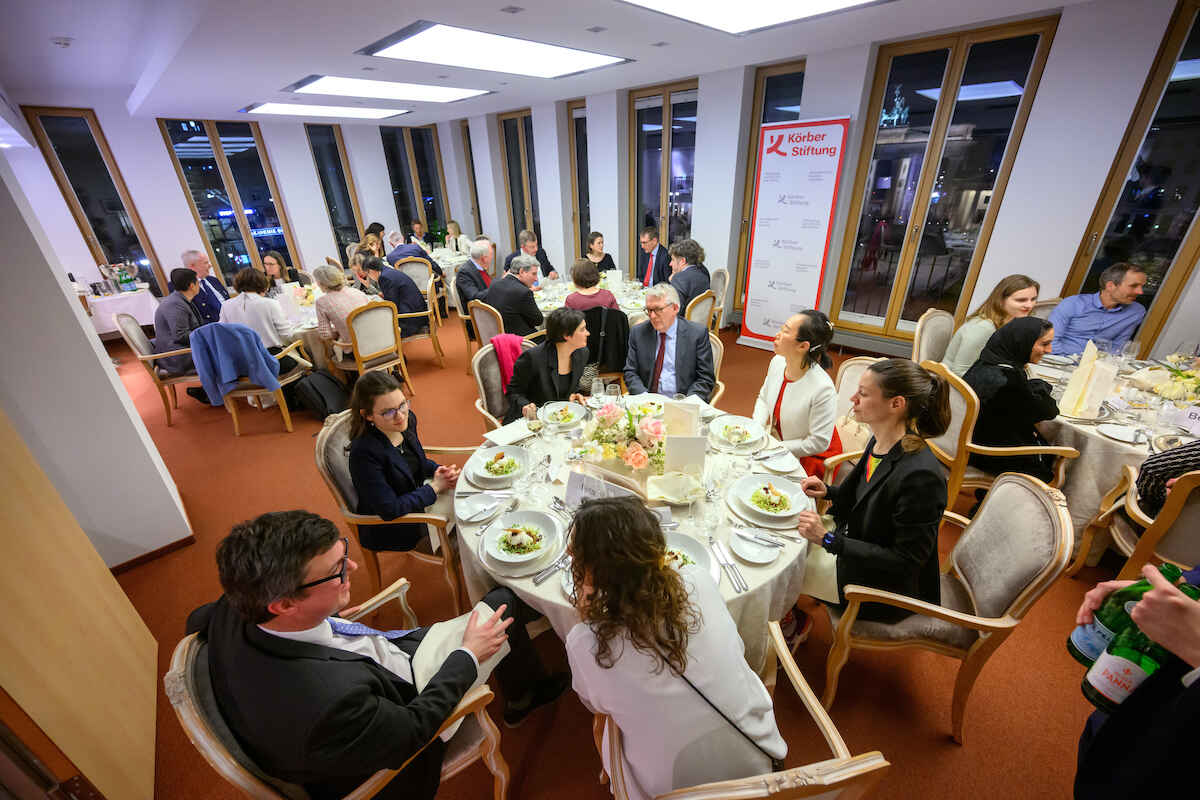
Opening Dinner at the Berlin Office of Körber-Stiftung 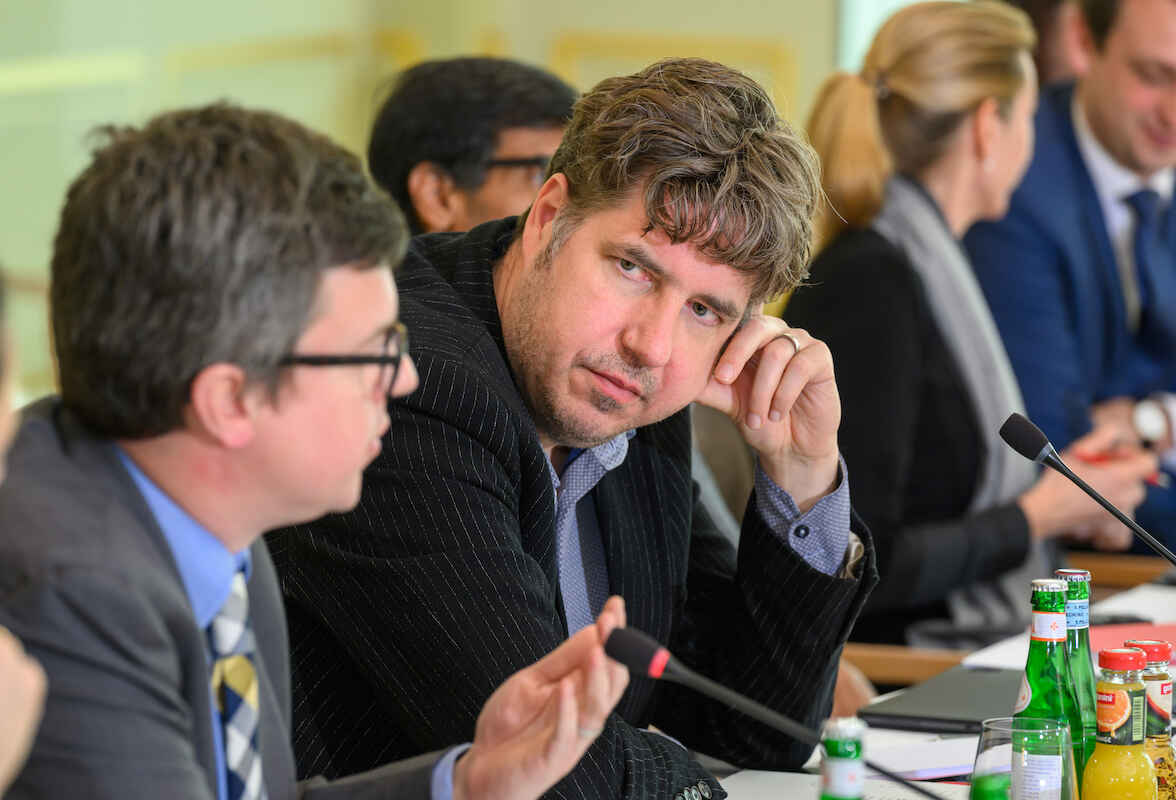
Peter Rough, Michael Kellner, Samir Saran, Stormy-Annika Mildner, Jacob Schrot 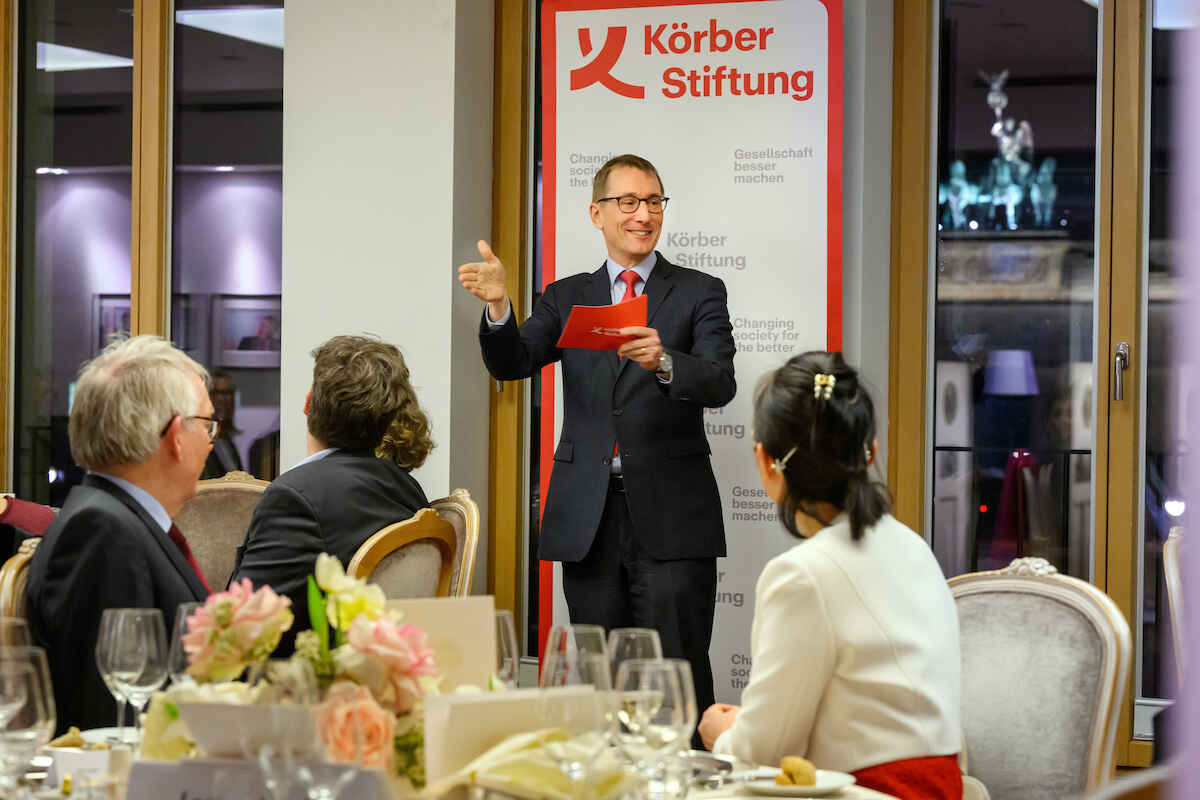
Thomas Paulsen 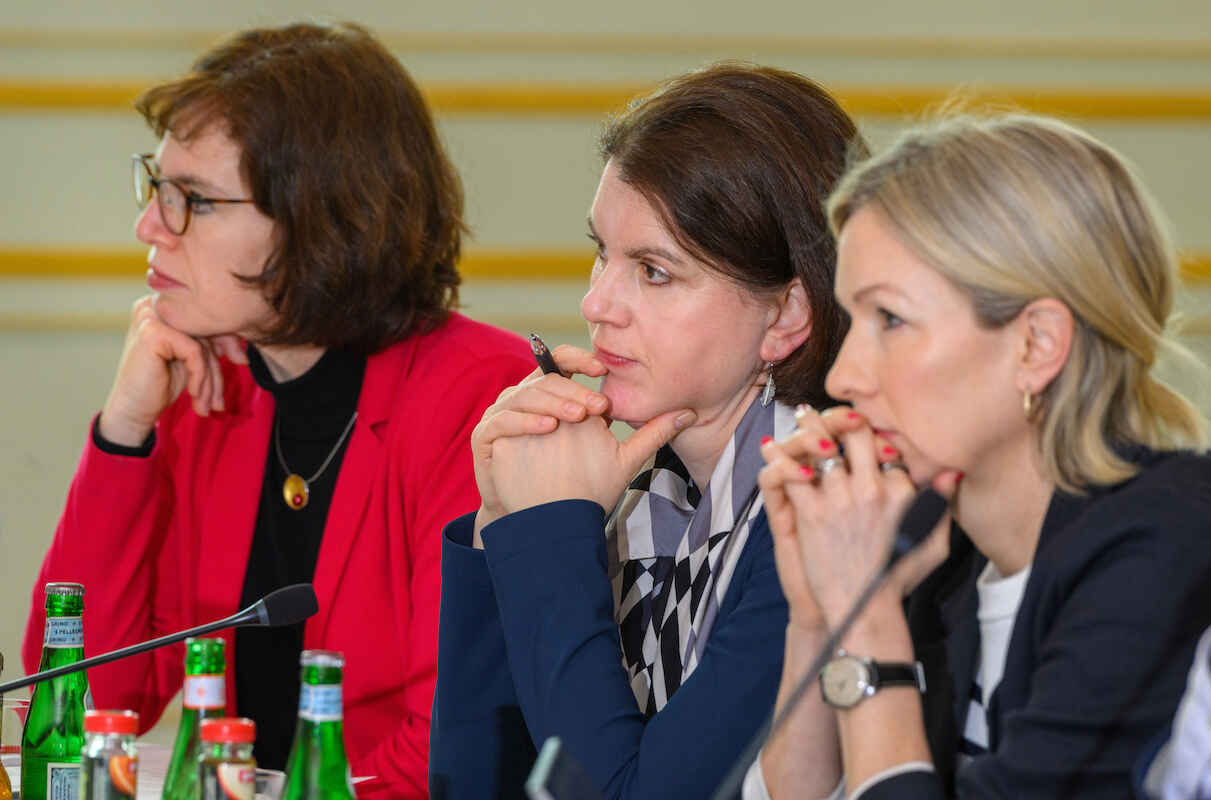
Daniela Brönstrup, Melissa Eddy, Kristina Eichhorst 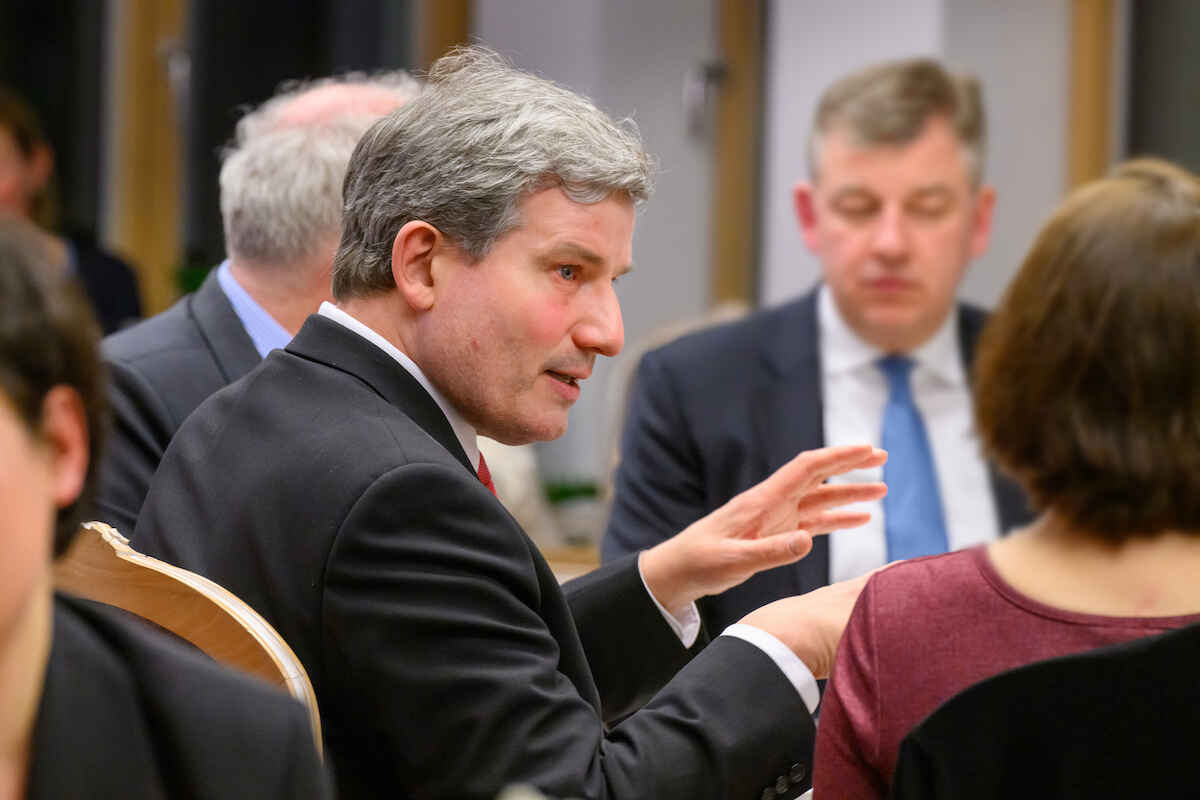
Metin Hakverdi 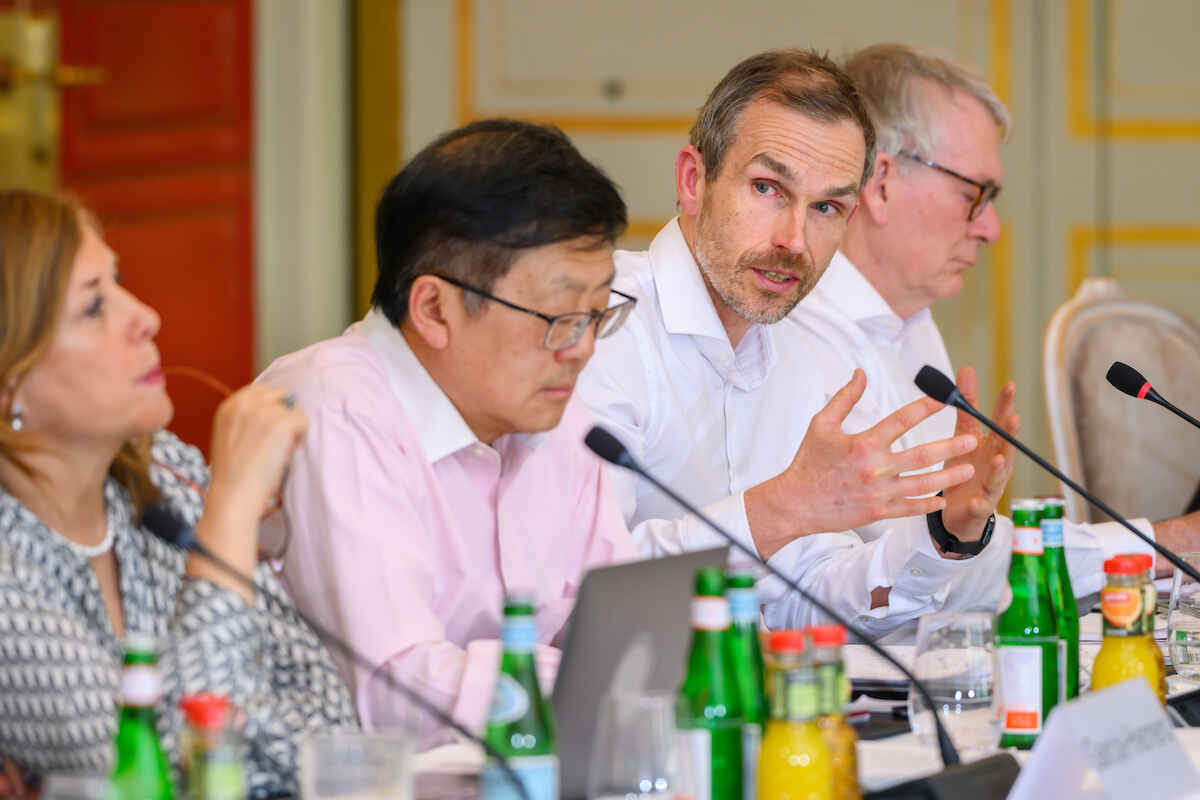
Alicia García-Herrero, Huang Jing, Thorsten Benner, David Marsh 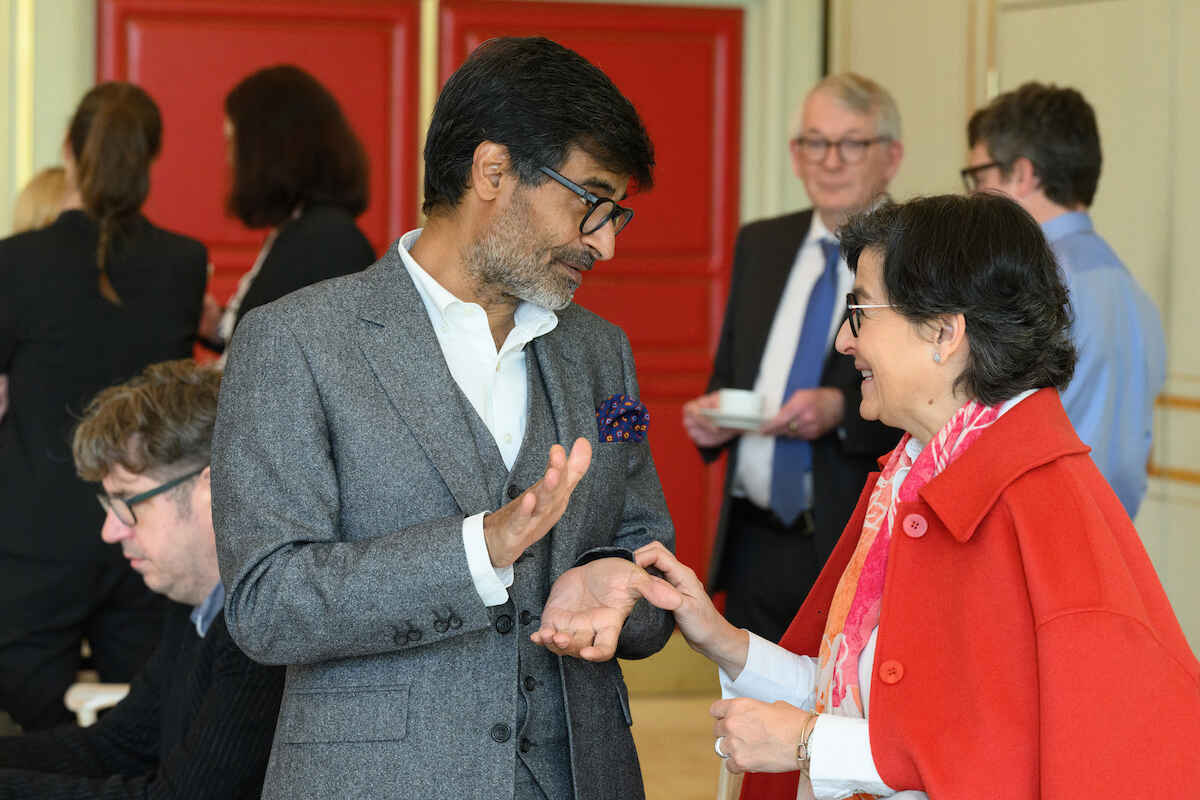
Samir Saran, Arancha González Laya